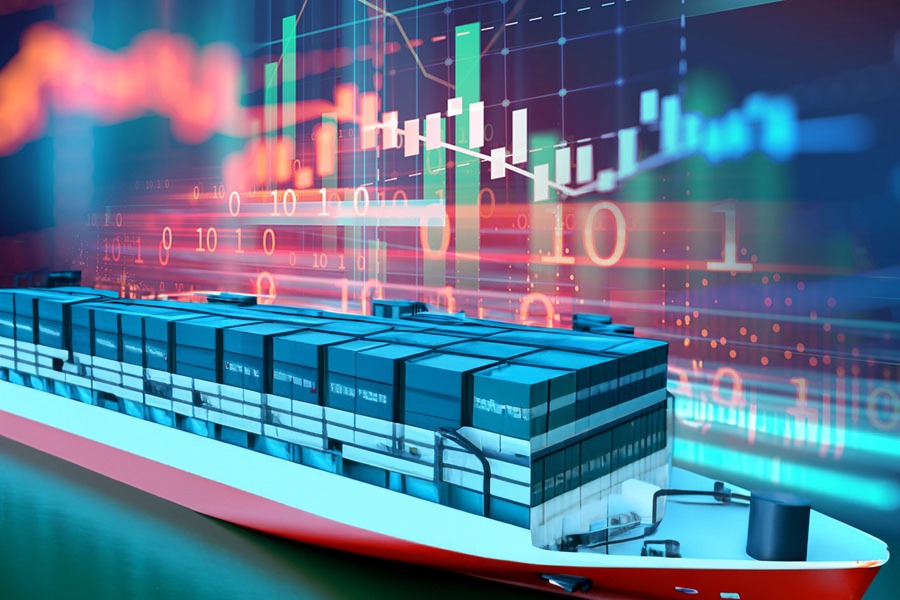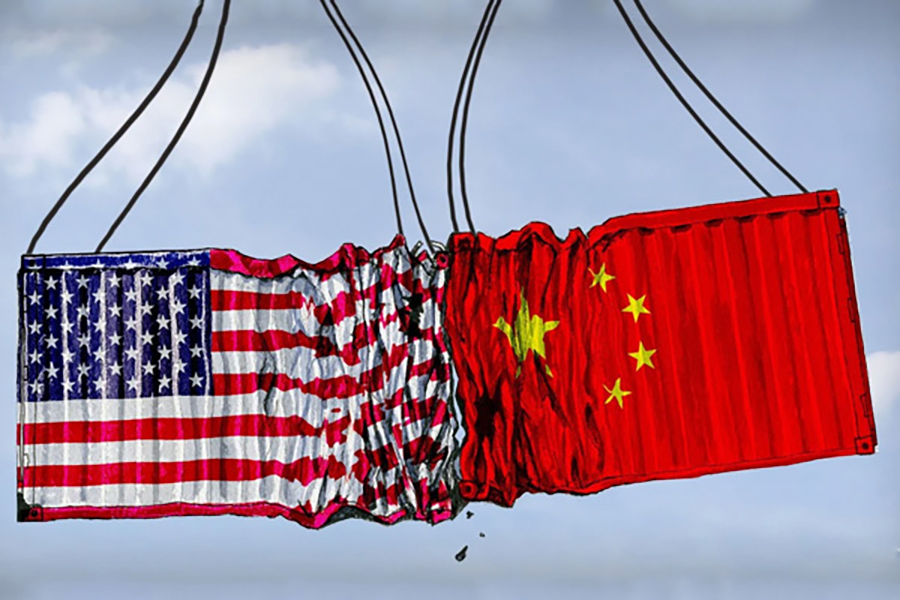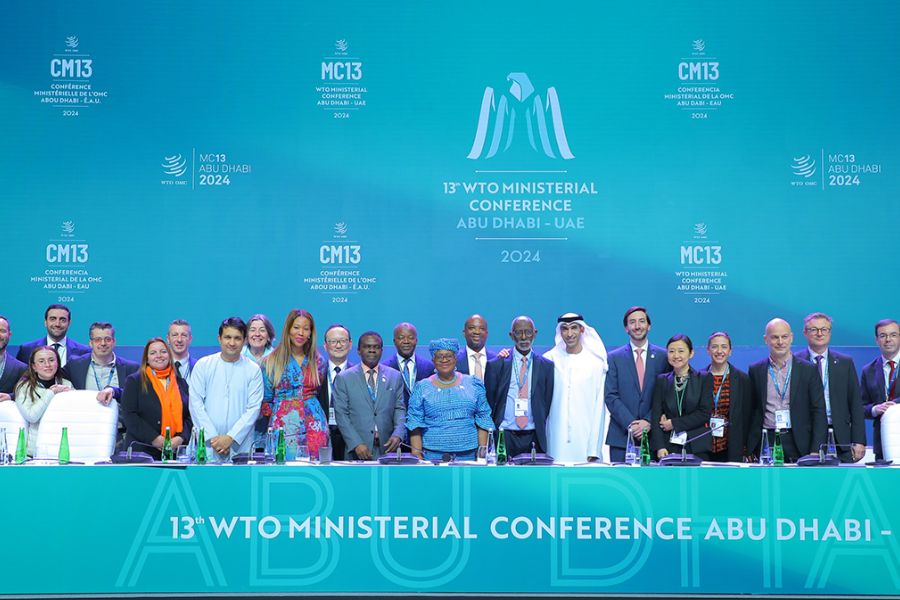If we ignore digital advancement, digital obsolescence will hit us hard
Dr K. Rangarajan, Professor and Head-IIFT, Kolkata Campus & Centre for MSME Studies and Member, Committee for Advanced Trade Research, TPCI agrees that India’s overall pace of digitization is impressive, but ensuring holistic benefits to the industry will take a lot of effort and inculcation of a digital mindset.

Digitization is the buzzword everywhere today. With the advent of Industry 4.0, a lot of opportunities are being cited and weighed at the policy and industry levels. When I was looking into the statistics, Asia Pacific happens to be one of the key regions driving digitization in trade post-pandemic. A study I was going through estimated that the contribution of digitization to incremental trade volume is more than 50% from Asia Pacific compared to single digits from some of the developed regions, including Latin America and Europe.
Within Asia Pacific, the contribution of countries like China, India, etc has definitely increased. The impact of digitisation on trade has gone up. In our region, the multiplier effect is expected to be very high at around 5-6 times by 2030-35. A few basic pertinent questions here are – “Are we prepared? Is the current ecosystem ready for undertaking the kind of a quantum jump or are we still operating in silos? When we pick up some of the statistics, silo-based operations are still causing delays at ports, certifications, documentation clearances, etc.
There still seems to be a lot of room for improvement. When you consider the digital impact on trade, there are e-commerce transactions on one hand, where the platform dependency is very high. On the other hand, there are non-e-commerce transactions (like bulk exports), where more digitally literate human resources are involved.
There are three areas where I propose improvements in particular. Firstly, there have been significant initiatives like Sagarmala, Digital India and the recently launched National Logistics Policy. But the major problem from the policy side is that there are numerous ministries and departments involved in the digitisation domain. For example, when the DGFT, Customs and port authorities are involved, how are these being linked, so that all of them speak the same digital language?
The solution is ensuring that all of them come on the same kind of a platform. For example, an exporter has to reproduce a shipping bill at each of the touch points, though sometimes digitally. Can’t we have a single digital format, which can be used by port authorities, DGFT, customs and finance people? A shipping bill which is already there in the customs database, can’t the same be used by other authorities wherever required, so that duplication doesn’t happen? This will also reduce the transaction time involved for documentation clearances.
Secondly, almost all stakeholders, be it banks, logistics providers or e-commerce platforms – are concentrating on MSMEs, because they account for a much higher share of transactions. But MSMEs are a low-involvement user segment. It is expressed in the sense that the MSMEs don’t look into the technicalities of digitisation like a larger firm; instead they work on trust. The degree of trust with which they approach digitisation is very important. Hence the interested stakeholders should concentrate on building such trust, rather than simply propagating the on-set of digitalisation. I think industry bodies and trade promotion organisations should also take suitable initiatives in such direction, as the government can’t do much about it.
Most of our clusters are not located in the highly digitally connected areas. A unit holder from Ichalkaranji or an artisan from Sankrail don’t know what will happen to their transactions in the e-commerce mode due to their low awareness and minimal exposure. Hence, trust has to be built if the MSMEs should benefit from the digitalization.
Overall, the approach to digitization or mindset of digitization will be very important. Almost all of us agree that e-invoicing has become mandatory since the introduction of GST. But even in large organisations, we find that people raise e-invoices, and yet take a printout to put it in a file. The crux is that I have digitised, but at the same time, the benefit of digitization is not there. There is a fear of non-availability or non-acceptability of such digital documents. Electronic archiving and the data retention part of digitization and its acceptance should be adequately addressed.
The third aspect is about larger firms who achieve higher degree of digitization and use such technological superiority and digitisation capabilities as a badge of honour. But they need to understand that there are a lot of smaller players who are also working with them. Are they compatible with such technologies? I was talking to a corporate leader from a leading vehicle manufacturer, who sounded very ecstatic about supply chains, ERP solutions etc. But I asked him, “How many of your distributors who are sitting in across the country are compatible with your platform?” He said that the company is currently educating them and it’ll take around two years. Without ensuring compatibility with the ecosystem, there is no point in taking the leap.
Speed is of the essence. Technology is improving rapidly and new versions are coming. If we don’t adapt fast, obsolescence will also hit us even faster. By the time we adapt to that technology, it will be obsolete. So all the investments will go waste. There is no question that digitization will have a major impact on trade – foreign or domestic. The choice is yours – whether you are there to accept that impact and positively contribute to it or you want to be impacted negatively. This current phase of transformation certainly calls for serious introspection by all stakeholders.
K. Rangarajan is Professor and currently heading the Center for MSME Studies and Kolkata Campus of IIFT. He holds a Masters in Commerce with Management Specialization and remained first class throughout his academic career. He is an Accredited Management Teacher (AMT) conferred by All India Management Association and member of several professional bodies including AIMM (Australia).
His expertise includes Business Strategy and Strategic Planning in general and internationalization of SMEs and Management of Trade Support Institutions, including Trade Promotion Organizations. His areas of interest are Organizational Restructuring, Corporate and Business Level Strategies and Cluster Development. Dr Rangarajan has three decades of experience in teaching and consultancy apart from four years of industry experience at middle level with MNCs, and serving in overseas universities. He has lectured on Strategic Issues of the industry on various national and international forums.
He has been faculty for many MDPs conducted for the textiles and clothing sector. He has served as National Expert for UNIDO, Austria, ILO and Common Wealth Secretariat in different projects. He also executed Capacity Development Program for SMEs in Mekong Countries, sponsored by Swiss Agency for Development and Coordination. Apart from being a member of prominent industry bodies, he is nominated as Independent Director on the board of State Trading Corporation, by Government of India. He is also the member of the Steering Committee for promotion of exports, Government of West Bengal, Commerce & Industries Department. Views expressed are personal.













Leave a comment